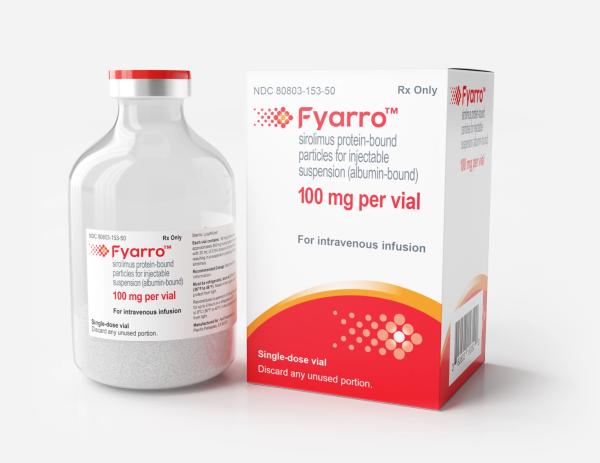Sirolimus protein-bound Disease Interactions
There are 4 disease interactions with sirolimus protein-bound.
Sirolimus albumin bound (applies to sirolimus protein-bound) liver dysfunction
Moderate Potential Hazard, Moderate plausibility. Applicable conditions: Liver Disease
The use of sirolimus albumin-bound should be avoided in patients with severe hepatic impairment. Closely monitor patients with mild and moderate impairment for increased liver toxicity. Dosage should be reduced in these patients.
Sirolimus albumin-bound (applies to sirolimus protein-bound) diabetes
Moderate Potential Hazard, Moderate plausibility. Applicable conditions: Diabetes Mellitus
Sirolimus albumin-bound can cause hyperglycemia. Fasting serum glucose should be monitored prior to starting treatment, and periodically during treatment in diabetic patients. Caution is advised.
Sirolimus albumin-bound (applies to sirolimus protein-bound) renal dysfunction
Moderate Potential Hazard, Moderate plausibility.
The effect of severe renal impairment on the pharmacokinetics of sirolimus albumin-bound is unknown. Caution and close monitoring is advised if using in these patients.
Sirolimus albumin-bound (applies to sirolimus protein-bound) vaccination
Moderate Potential Hazard, Moderate plausibility.
Immunizations during treatment with sirolimus albumin-bound may be ineffective. Immunization with live vaccines is not recommended during treatment and close contact with those who have received live vaccines should be avoided. Required immunizations should be updated according to immunization guidelines prior to initiating treatment, if possible. The interval between live vaccinations and treatment initiation should be in accordance with current vaccination guidelines for patients on immunosuppressive therapies.
Switch to professional interaction data
Sirolimus protein-bound drug interactions
There are 416 drug interactions with sirolimus protein-bound.
Sirolimus protein-bound alcohol/food interactions
There is 1 alcohol/food interaction with sirolimus protein-bound.
More about sirolimus protein-bound
- sirolimus protein-bound consumer information
- Check interactions
- Compare alternatives
- Side effects
- Dosage information
- During pregnancy
- Drug class: mTOR inhibitors
- En español
Related treatment guides
Drug Interaction Classification
| Highly clinically significant. Avoid combinations; the risk of the interaction outweighs the benefit. | |
| Moderately clinically significant. Usually avoid combinations; use it only under special circumstances. | |
| Minimally clinically significant. Minimize risk; assess risk and consider an alternative drug, take steps to circumvent the interaction risk and/or institute a monitoring plan. | |
| No interaction information available. |
See also:
Further information
Always consult your healthcare provider to ensure the information displayed on this page applies to your personal circumstances.


